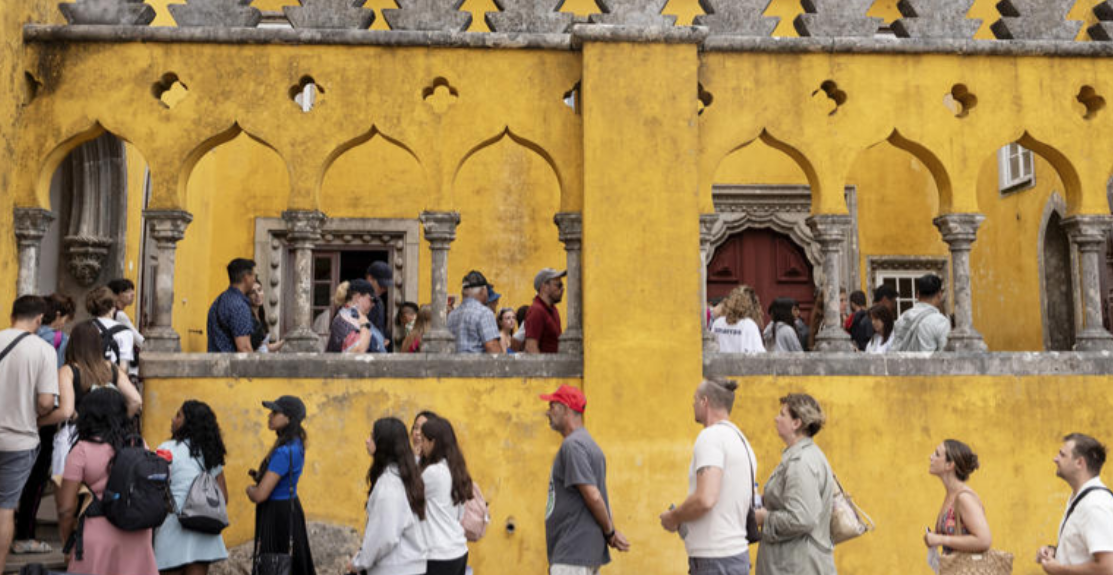A look at the chaos of ‘overtourism’ in the summer of 2024
||| FROM ASSOCIATED PRESS |||
SINTRA, Portugal (AP) — The doorbell to Martinho de Almada Pimentel’s house is hard to find, and he likes it that way. It’s a long rope that, when pulled, rings a literal bell on the roof that lets him know someone is outside the mountainside mansion that his great-grandfather built in 1914 as a monument to privacy.
There’s precious little of that for Pimentel during this summer of “overtourism.”
Travelers idling in standstill traffic outside the sunwashed walls of Casa do Cipreste in Cintra sometimes spot the bell and pull the string “because it’s funny,” he says. With the windows open, he can smell the car exhaust and hear the “tuk-tuk” of outsized scooters named for the sound they make. And he can sense the frustration of 5,000 visitors a day who are forced to queue around the house on the crawl up single-lane switchbacks to Pena Palace, the onetime retreat of King Ferdinand II.
“Now I’m more isolated than during COVID,” the soft-spoken Pimentel, who lives alone, said during an interview this month on the veranda. “Now I try to (not) go out. What I feel is: angry.”
Anyone paying attention during this summer of “overtourism” is familiar with the escalating consequences around the world: traffic jams in paradise. Reports of hospitality workers living in tents. And “anti-tourism” protests intended to shame visitors as they dine — or, as in Barcelona in July, douse them with water pistols.
**If you are reading theOrcasonian for free, thank your fellow islanders. If you would like to support theOrcasonian CLICK HERE to set your modestly-priced, voluntary subscription. Otherwise, no worries; we’re happy to share with you.**











Interesting article… and one that sounds familiar. Thanks for posting. The title itself, “Too many people, not enough management,” is an oxymoron.
That is, what we’re finding is that “managing tourism” means that it’s being managed, not for the well-being of the residents, and not for the long-term viability of the communities that host it… but for maximum profit. Tourism is a profit driven enterprise heavily subsidized by the government at every level, (in other words, “by the people”). Managing tourism at the state or local level is no different than agencies like the BLM, or the DNR, or the U.S. Forest Service that manage the properties under their jurisdictions under the guise of “multi-use,” and are also tasked to do so for profit.
Almost every year is a record setting year for tourism, and when it isn’t, it’s considered to be “a down year,” a “poor year,” something that we can’t have. Because unless we’re having a banner year, every year, there’s something wrong.
Yet even in a banner year there is something wrong. That in itself is an oxymoron. Because there is something terribly wrong with an industry that consumes the host… for profit.
Just say “No!” No more increases in tourism marketing and promotion, no more increases in tourism infrastructure, no more cheesy tactics of dispersion, seasonality, and Freedom camping. And no more increase in redundant tourism businesses that offer underpaying jobs with no benefits.